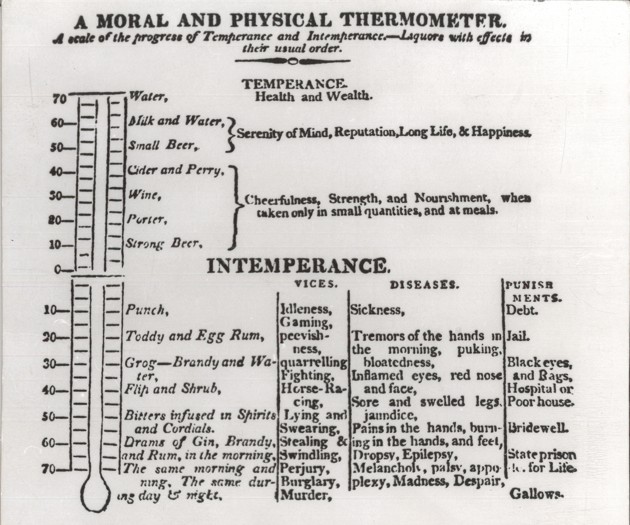Why did this 18th-century doctor care so much about moral consequences of drinking? “It was a pretty common belief among the founders [regarding] America’s experiment with republicanism, that the only way that we were going to keep it was through the virtue of our citizens,” said Bruce Bustard, the curator of a National Archives exhibit on American alcohol consumption. As Rush observed the effects of alcohol consumption, he had the young nation’s future in mind: People experiencing what he saw as the “Melancholy,” “Madness,” and “Despair” of intemperance surely wouldn’t make for very good participants in democracy.Share
Early America was also a much, much wetter place than it is now, modern frat culture notwithstanding. Instead of binge-drinking in short bursts, Americans often imbibed all day long. “Right after the Constitution is ratified, you could see the alcoholic consumption starting to go up,” said Bustard. Over the next four decades, Americans kept drinking steadily more, hitting a peak of 7.1 gallons of pure alcohol per person per year in 1830. By comparison, in 2013, Americans older than 14 each drank an average of 2.34 gallons of pure alcohol—an estimate which measures how much ethanol people consumed, regardless of how strong or weak their drinks were. Although some colonial-era beers might have been even weaker than today's light beers, people drank a lot more of them.
In part, heavy alcohol consumption was a way to stay hydrated: Often, clean water wasn’t always accessible. Hard liquor, on the other hand, was readily available, Bustard said; farmers frequently distilled their grain into alcohol. Rush “may have been observing what's going on on the frontier,” Bustard said, “thinking, you know: What's the country going to come to?” (Read more.)
Saturday, July 4, 2015
Colonial Americans and Intemperance
Subscribe to:
Post Comments (Atom)



















No comments:
Post a Comment